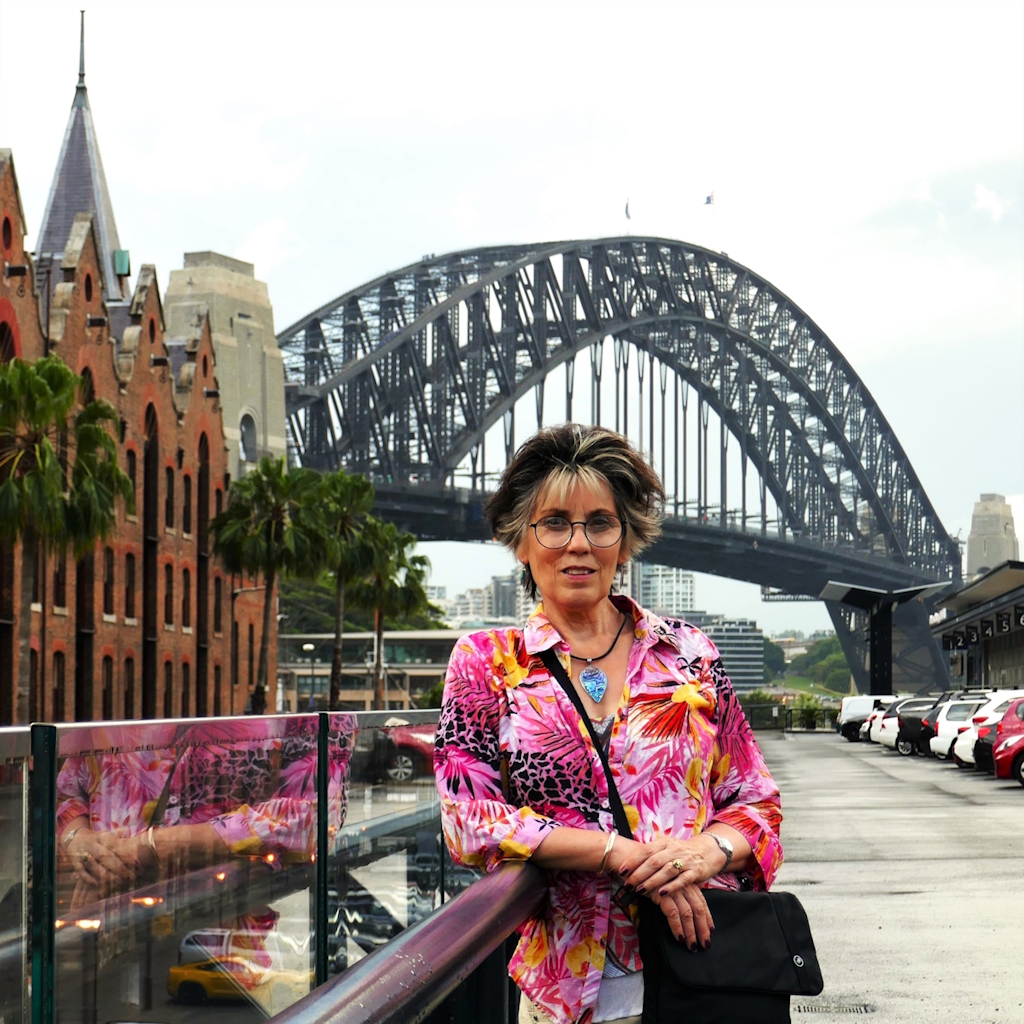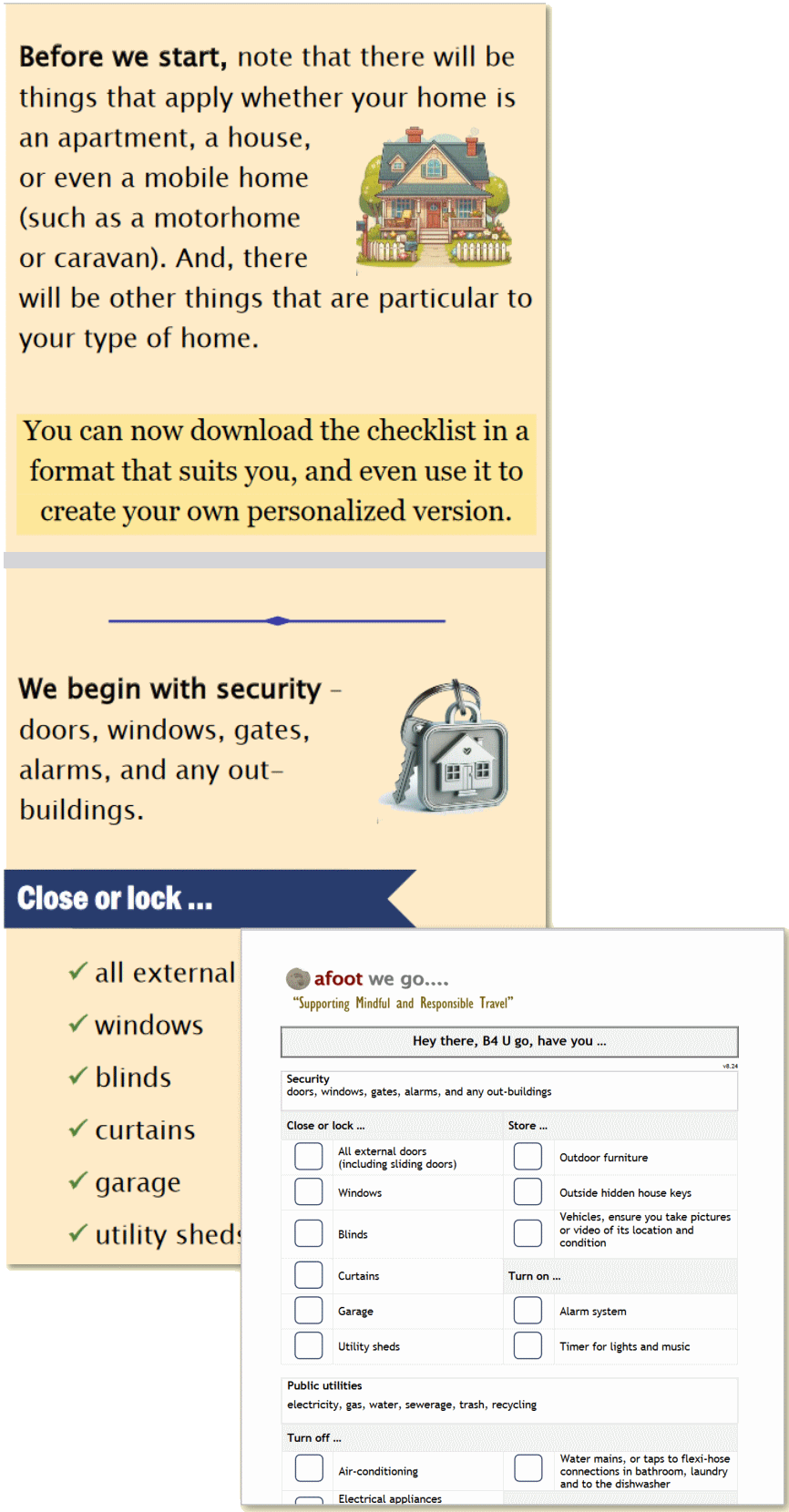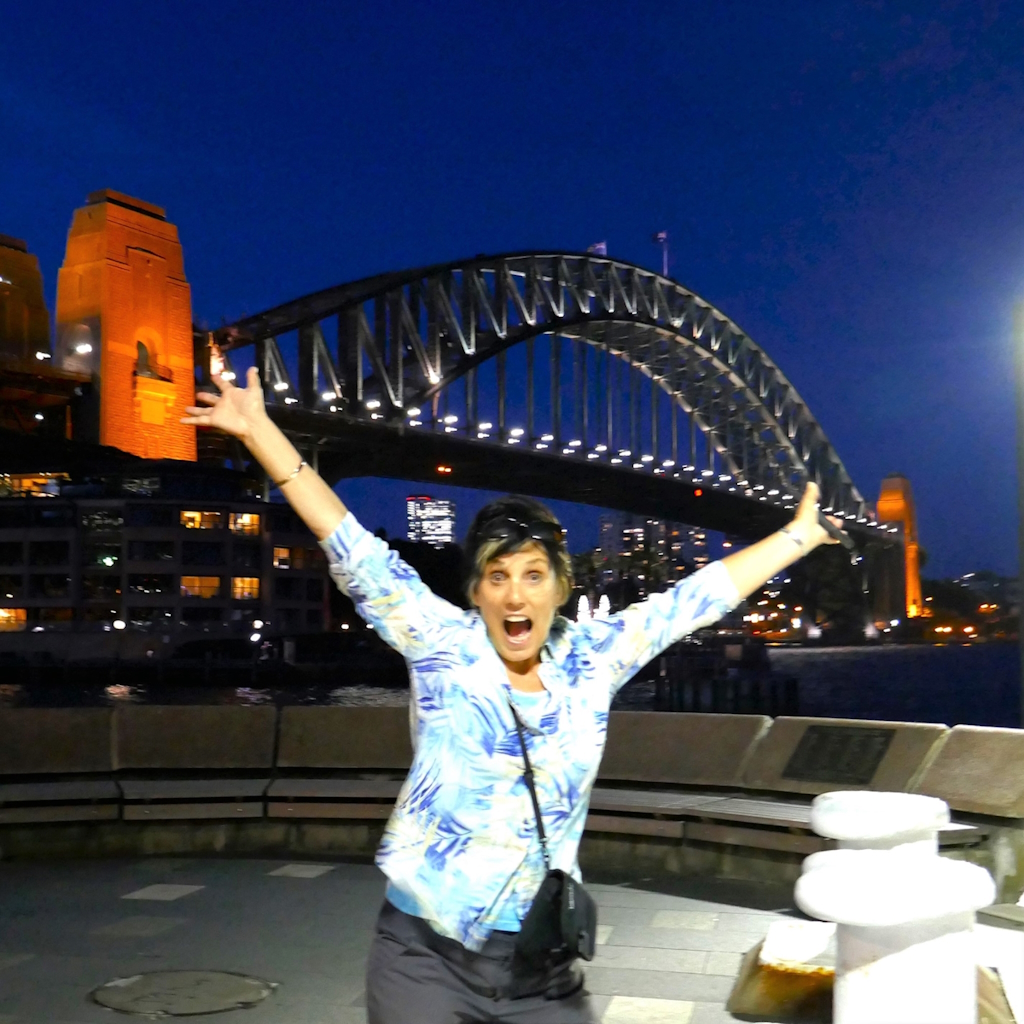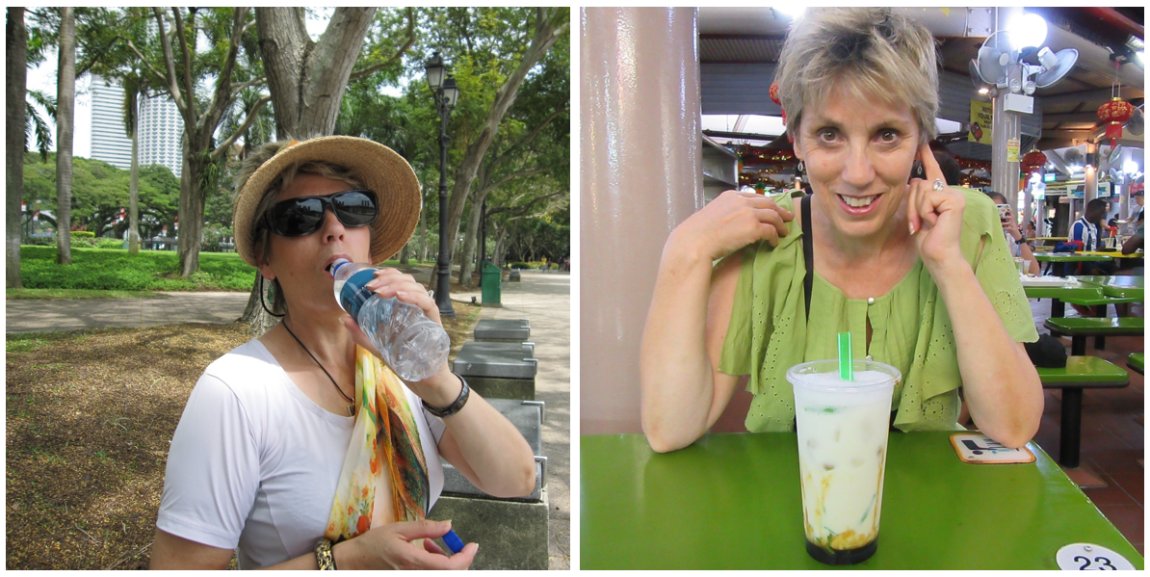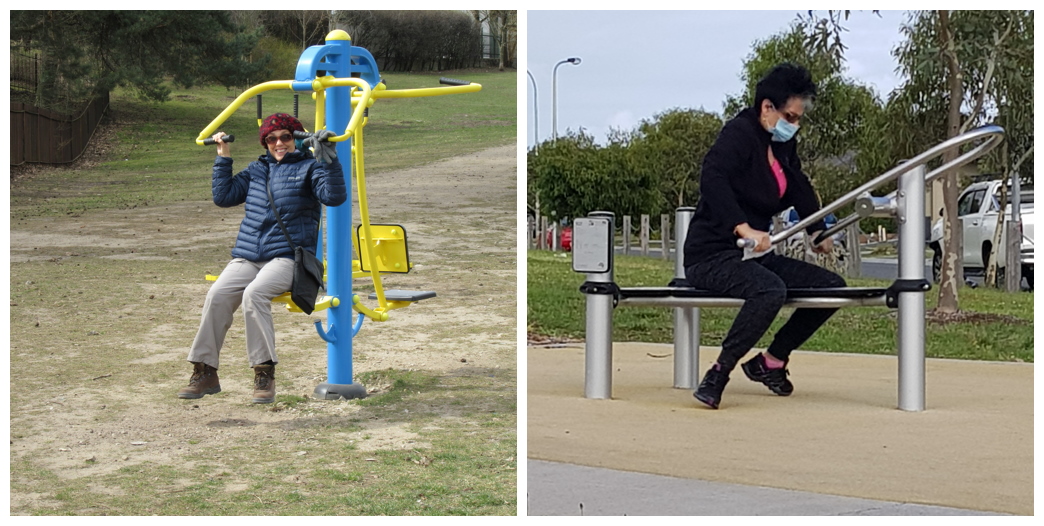afootwego-03-daily-routine-&-travel-not-friends
afootwego Post – Our Daily Routine and Travel are NOT Friends
…for people who love to walk…
Supporting Mindful and Responsible Travel
being able to maintain some of our normal daily routines while we are traveling can be particularly important
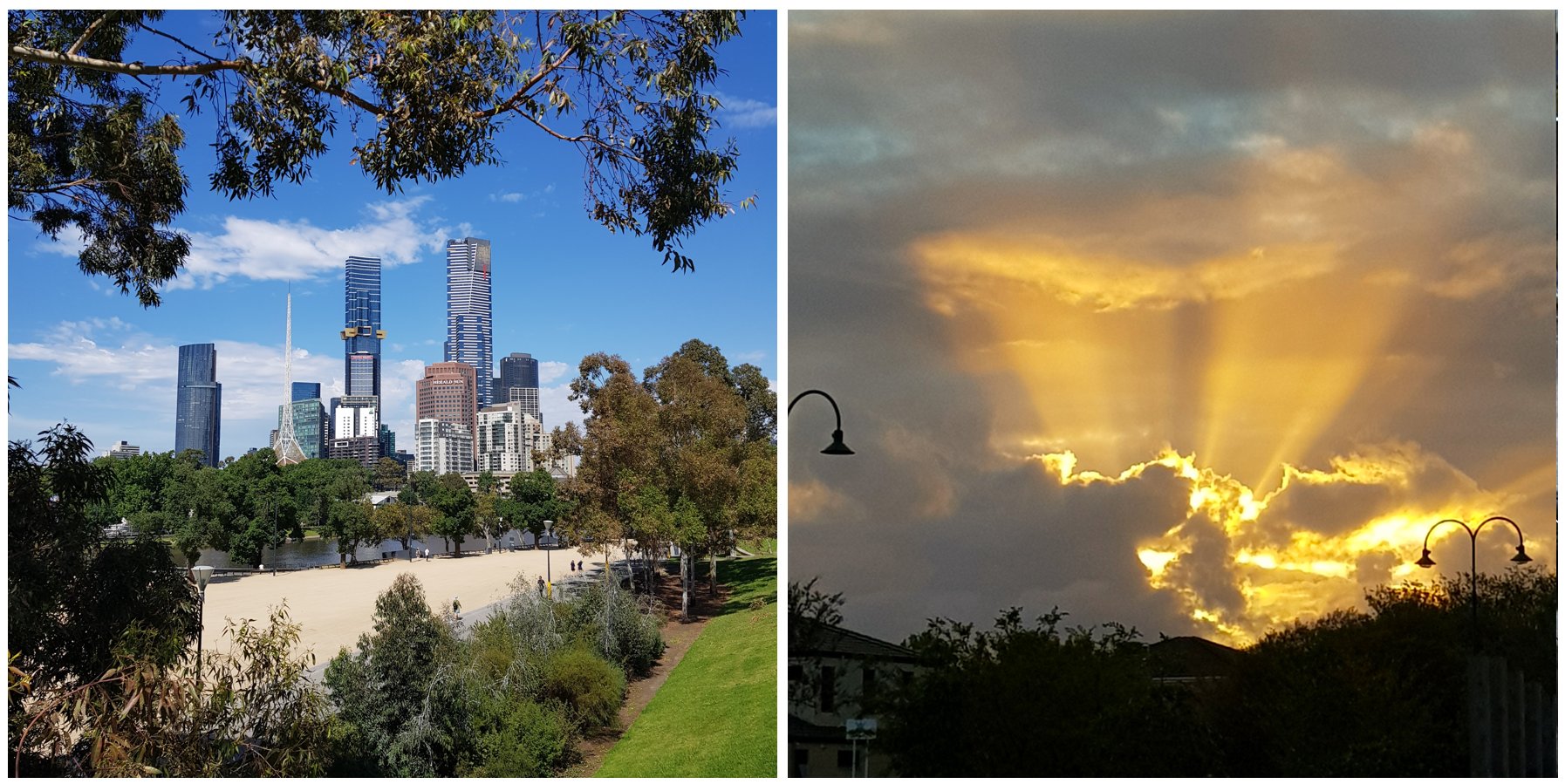
Daily Routine & Travel – NOT Friends
October 2024
8¾
Travel tends to mess with our daily routine, sometimes to the extent that we simply don’t have one.
Early morning departures, long days in transit, late nights socialising – it’s all part of travelling. It’s what we do.
A disrupted daily routine can lead to problems with sleeping, which can have a flow-on impact on our general health and well-being.
A Quick Outline
In this Post, we shall explore:
Daily Routines are about Survival
Our hunter-gatherer cave-dwelling ancestors most probably had their daily routines. Especially for things like checking what was going on outside the cave, during the day and the night.
Today, Health experts (such as Chicago’s Northwestern Medicine) tell us: "Your daily routine influences your quality of rest. Your sleep schedule and bedtime habits affect your mental sharpness, performance, emotional well-being and energy level."
What they didn’t mention is that sleep deprivation also affects how well we remember things. Our brains don’t cope well, and our memories of events and experiences quickly fade.
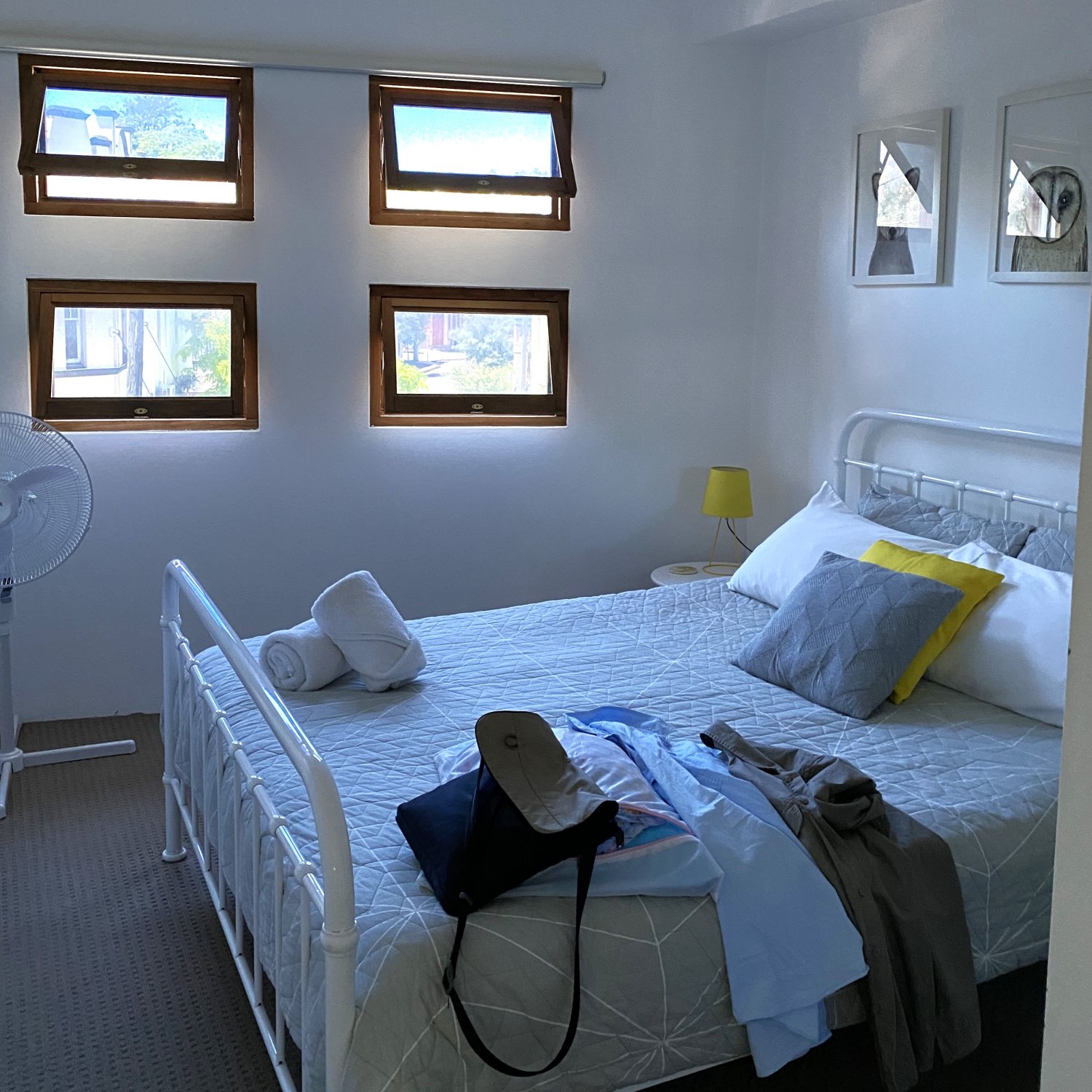
In fact, our brains actually like routines, because they require less energy, and so they are more efficient.
Travel will disrupt our Routine big-time!
However, when we are travelling, keeping to our 'every-day' routine can become a real challenge.
Everything, from sleeping and eating, to exercise and meditation, becomes disrupted.
It’s like all of a sudden, our usual daily routine, with its disciplines and habits, is now a chore!
We are in a stimulating new destination, with so many exciting things to see and do.
No work tomorrow, so why go to bed at the usual time? We can always sleep-in!
So many choices of foods to eat, but who cares about the nutritional value of a meal!
As for exercise, and meditation, maybe we’ll do that later (maybe!)?
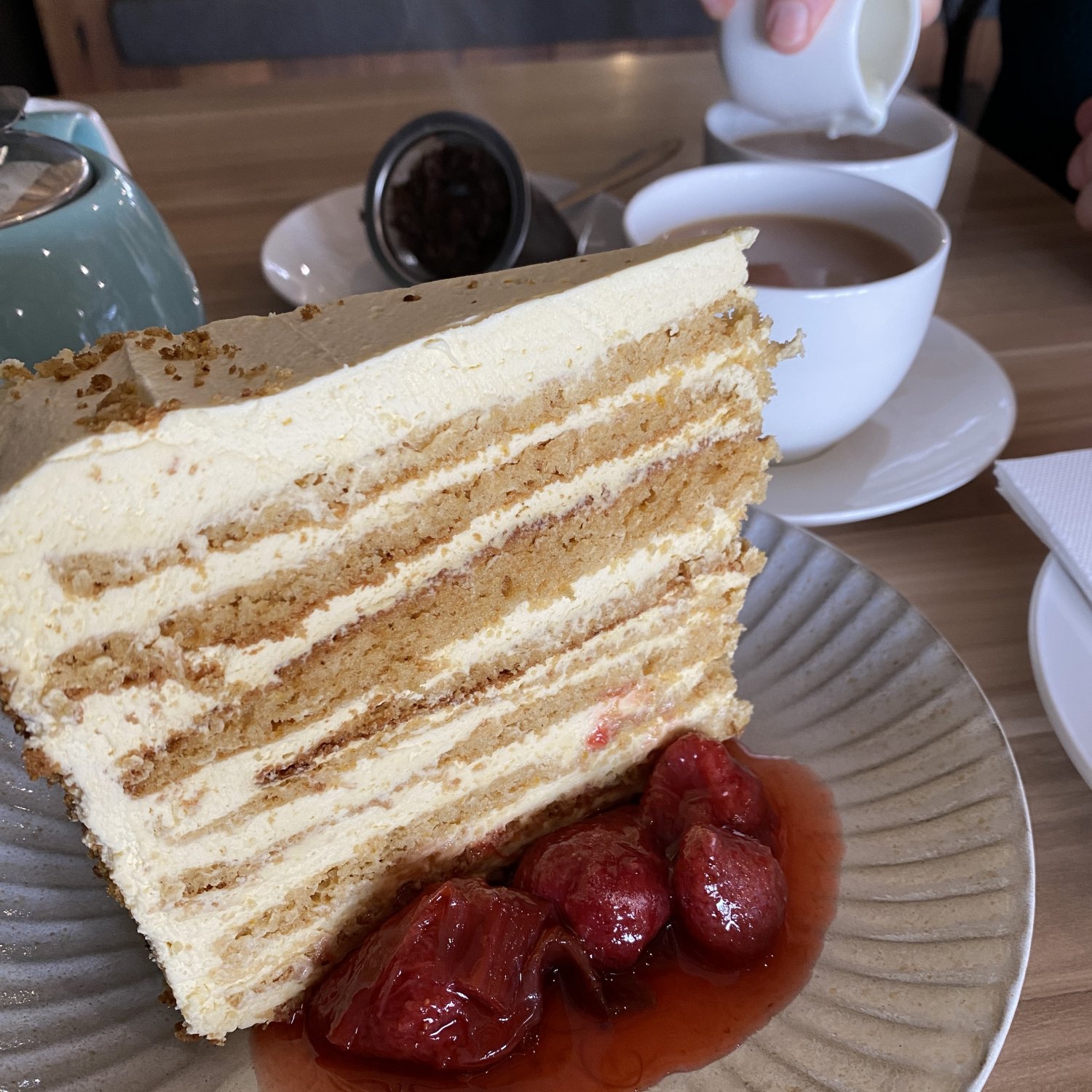
We can always walk it off later, or maybe tomorrow?
Disruption can have Consequences
The consequences of a disrupted daily routine can be really serious, especially if the disruption goes on for several days.
When we are travelling, we are also likely to be in a state of 'brain overload', with many new and different things to come to grips with. That aside, as we become tired, making mistakes becomes easier, and even simple mistakes can be serious (where did I put my train pass ?!).
Sometimes travelling can keep us busy for most of the day, or even longer. This will not only potentially disrupt our usual sleeping routine, but if we are flying across several time-zones, we may also encounter the dreaded 'jet-lag' (that’s a whole topic on its own).
Finally, when our travel adventures end, and we return back to 'life-as-usual', we need to leave our disrupted routine behind. Some people say it like: "…after my vacation, I need a rest…"”.
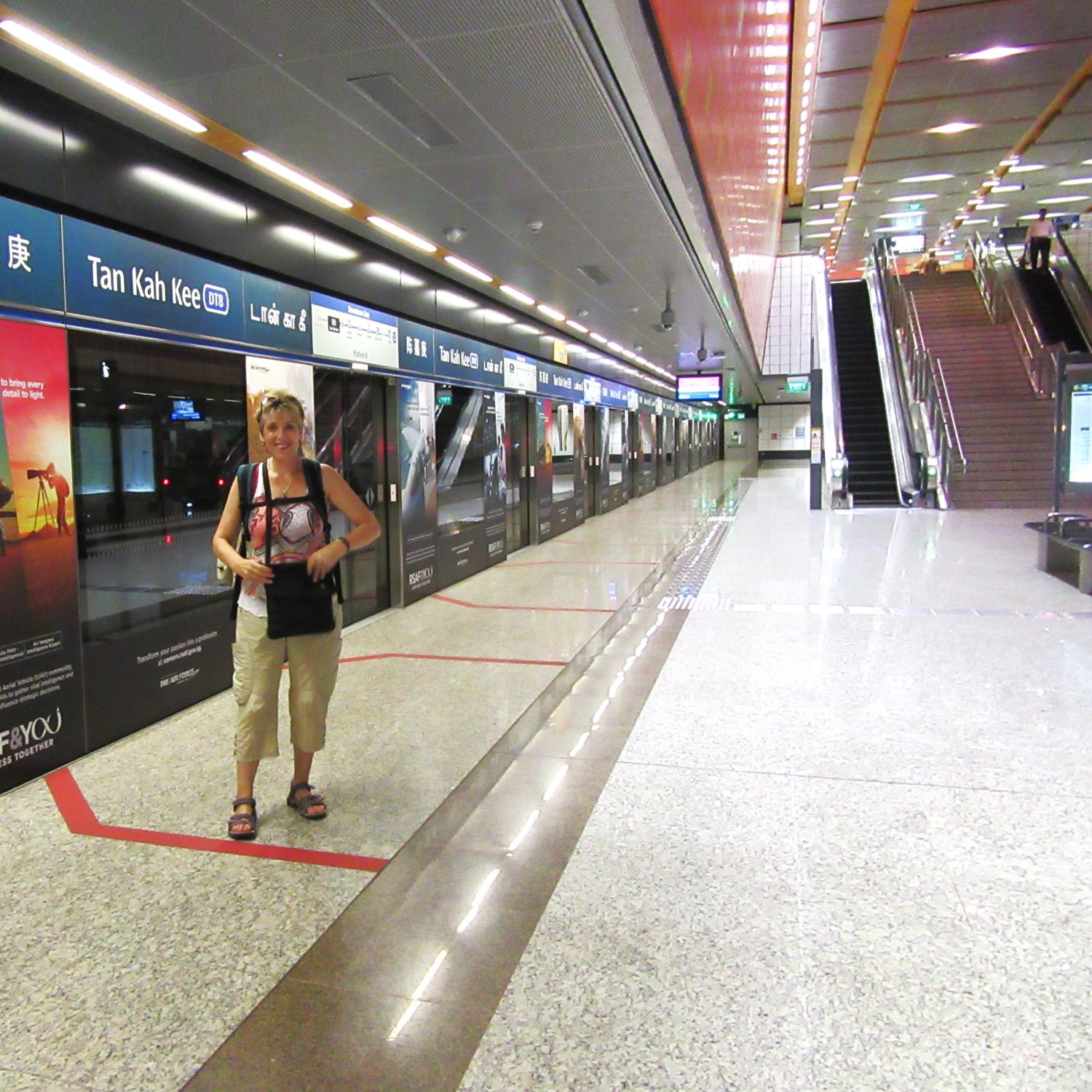
With a little fore-thought, perhaps we can reduce the amount of disruption to our daily routine by integrating some of our usual daily activities into our daily travel schedule?
For sure, we will need to do a little planning, but it WILL be worth it.
Let’s now dig a little deeper into what’s involved here:
- Sleep
- Eating
- Hydration
- Exercise
- Meditation
Sleep…
Sleep is the key. If we don’t get this right, inevitably we will suffer from sleep deprivation. And with that, all the precious memories of our wonderful experiences can become jumbled, or even lost.
Lack of sleep can also potentially comprise our safety! Along with 'brain fog', and possible moodiness, we have less energy, and our body’s immune system can become compromised, making us prone to infections.
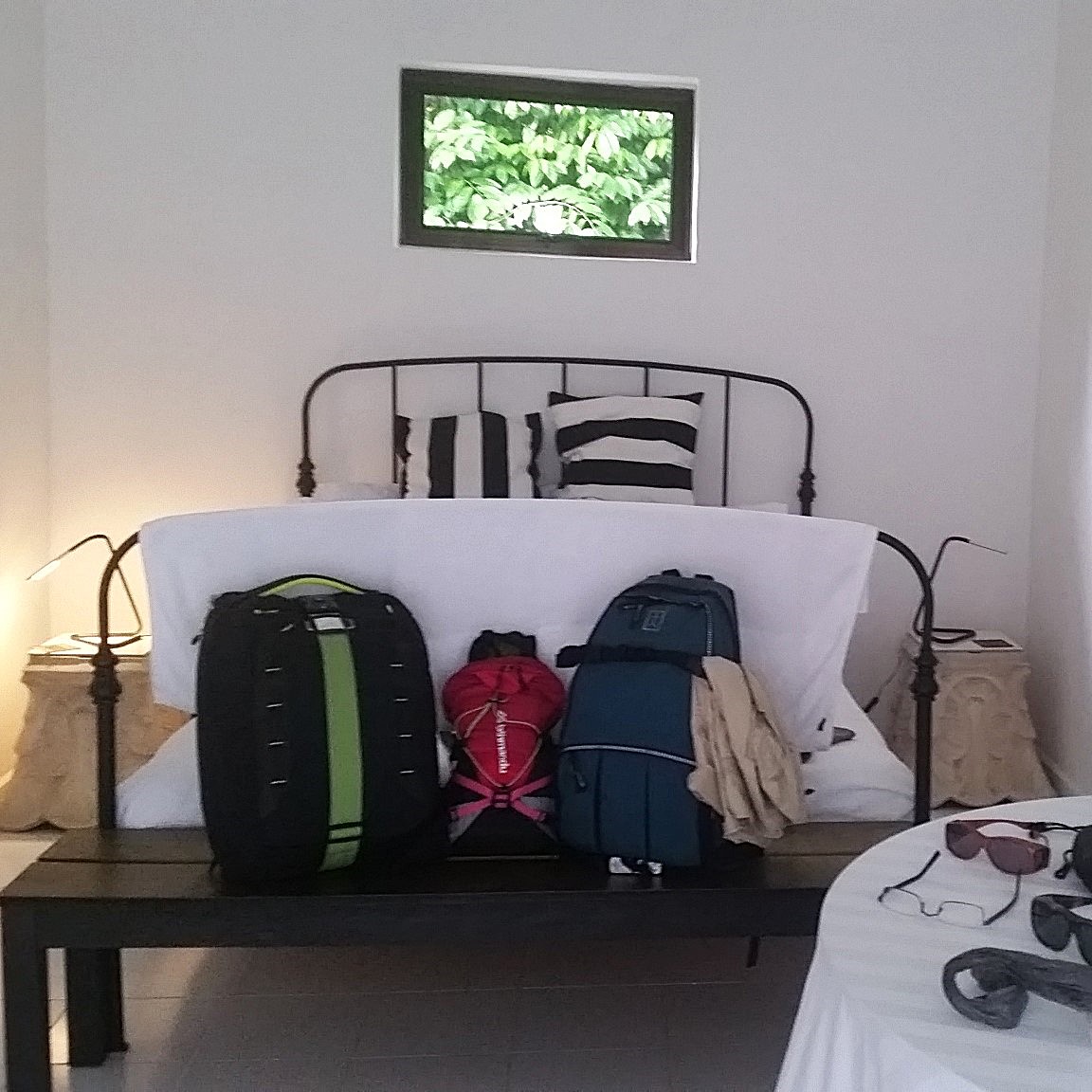
Unless we are 'dog-tired', when we are in a new place, the bedroom environment is really important. In comparison to what we have at home, things to check include…
- pillows – some people have their own sleeping pillow (I do!)
- bedding – being too hot in bed can be as bad as being too cold
- room temperature – can this be adjusted?
- fresh air – can windows be left open (think: safety, insects, weather)
- external light – are there blinds or curtains?
- external noise – if it is noisy outside, what are my options?
Finally, if we do become sleep deprived, the wisest ‘immediate action’ may be to take a short nap of around 20-30 minutes. But be aware, anything longer may compromise our next night-time sleep, when we may even want to turn in a little earlier than usual.
Eating…
We know that food not only provides energy, but enjoying good food may be one of the reasons why we travel. What better way to experience a new culture, than to sample their cuisine?
Maintaining some regularity in our food (and fluid) intake routine is important, as is maintaining some regularity about what we are eating. We may also need to ensure our schedule allows us to take bathroom breaks, when our ‘system’ needs them.
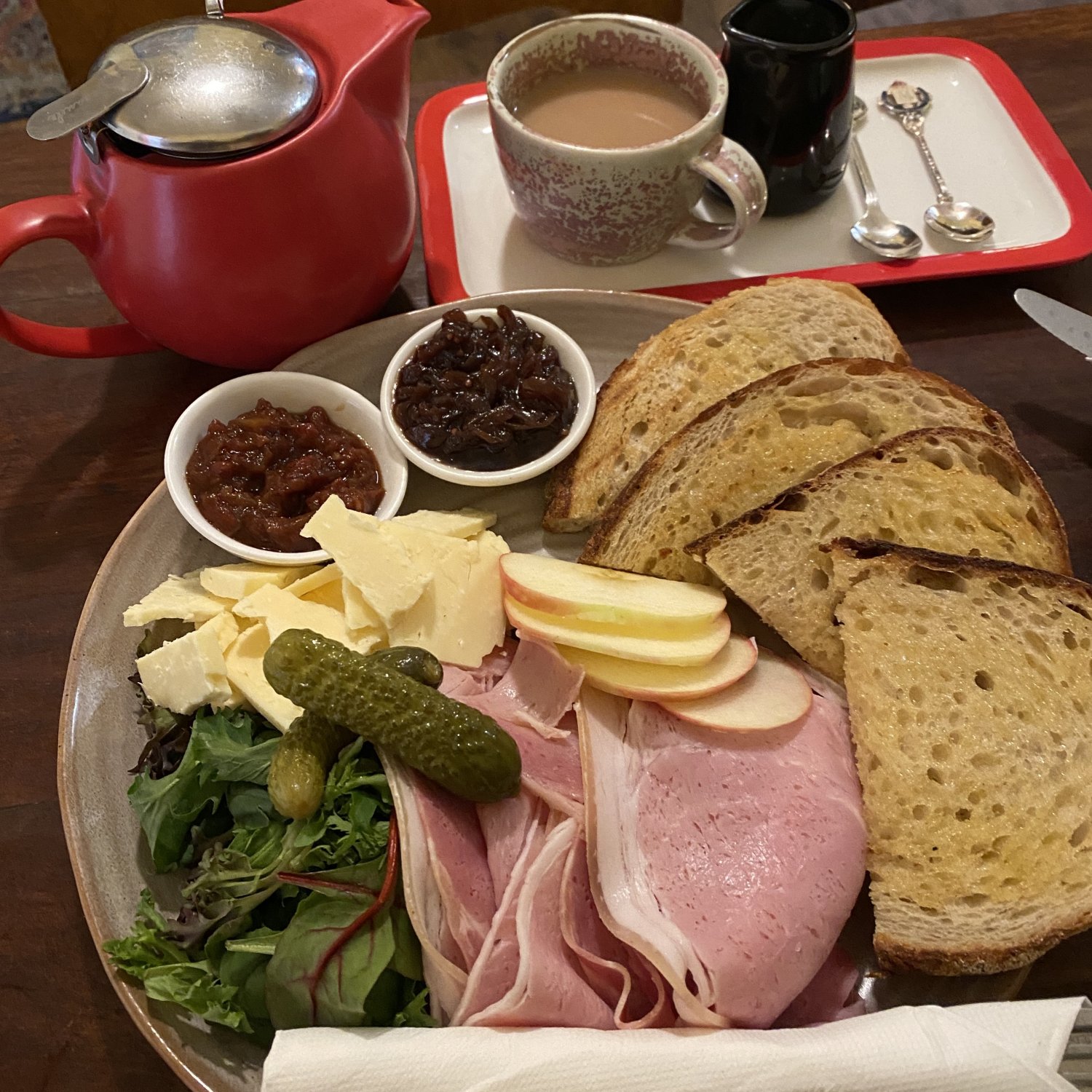
In the meantime, some thoughts to ponder…
- while traveling, especially if we are doing more walking than usual, we may need to sustain ourselves by carrying high energy snacks
- at all costs, avoid starting a touring day on an empty stomach
- if we have particular dietary needs, or preferences, it can be useful to bring some of our favourite foods from home in packaged form – once we have checked our destination’s biosecurity, as there may be import restrictions!
Travelling can tempt us to indulge at times, but if we are also burning the calories on a regular basis, a little indulging should not hurt us.
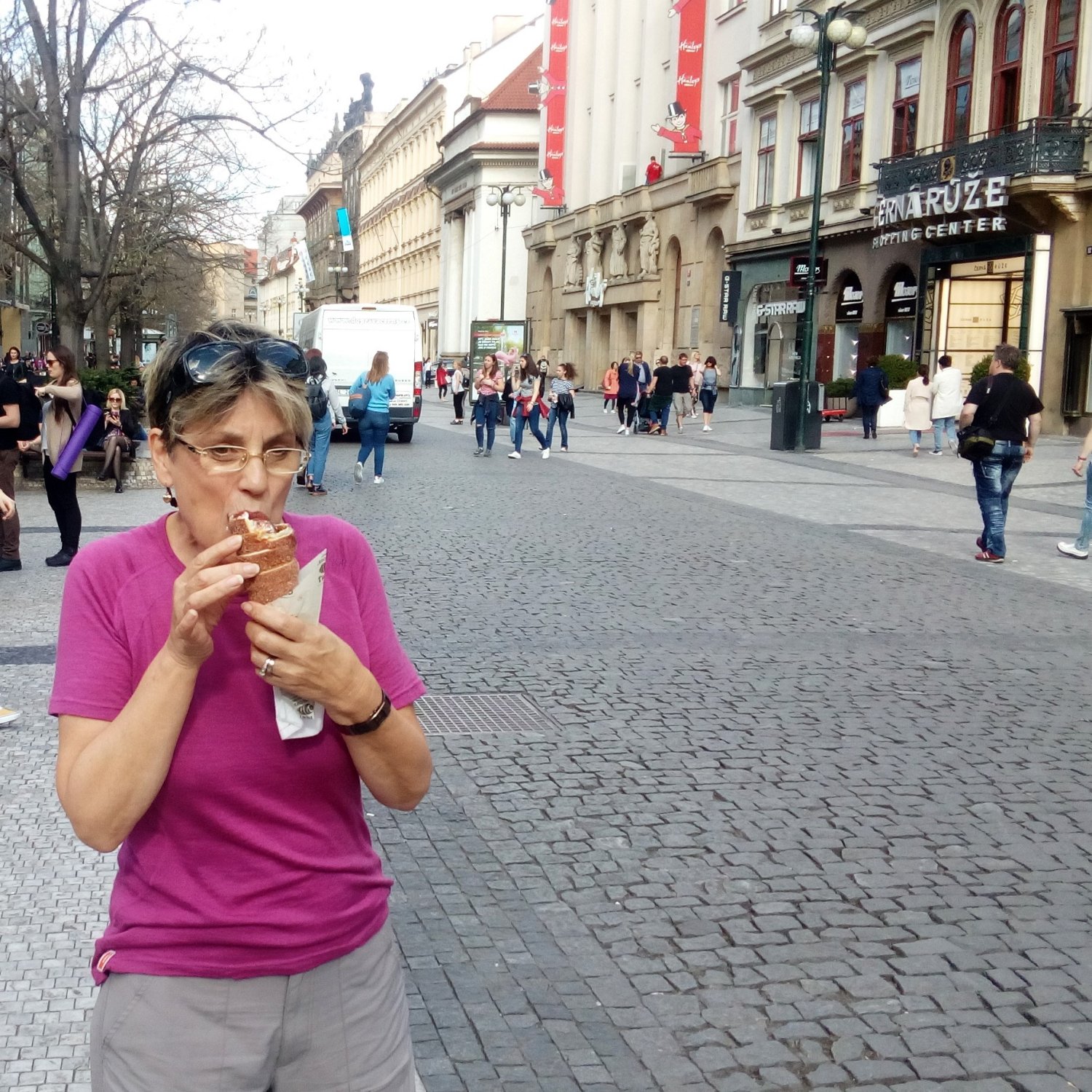
Hydration…
In short, hydration is what keeps us alive. And travel can quickly disrupt our usual hydration routines.
Around 55% of the adult human body is water, while around 80% of our brain mass is also water.
Mild dehydration can begin if we lose just 1.5% of the water in our body. And a loss of 1% of the water from our brain will affect our concentration and short-term memory.
Long-haul flights (of 6 hours, or more) mean dehydration, as the dry air in the cabin absorbs moisture from our faces and other exposed skin areas of our bodies.
And it seems that drinking alcohol doesn’t help at all! In fact, every sip we take of an alcoholic drink will contribute to our dehydration, because alcohol causes our body to remove fluids from our bloodstream.
But, rehydration is not as simple as ‘chugging’ a bottle of water (that will overload our kidneys, and much of it will be flushed out as urine).
Here are some quick take-outs…
- our personal hydration needs are affected by a number of things, including our gender, weight, age, activity level, and the local climate
- many guidelines for keeping ourselves hydrated are generalised, and in some cases may be quite dubious
- hydration is not just about water, rather it is about all of the fluids we take in, which includes various fruits and vegetables
Exercise…
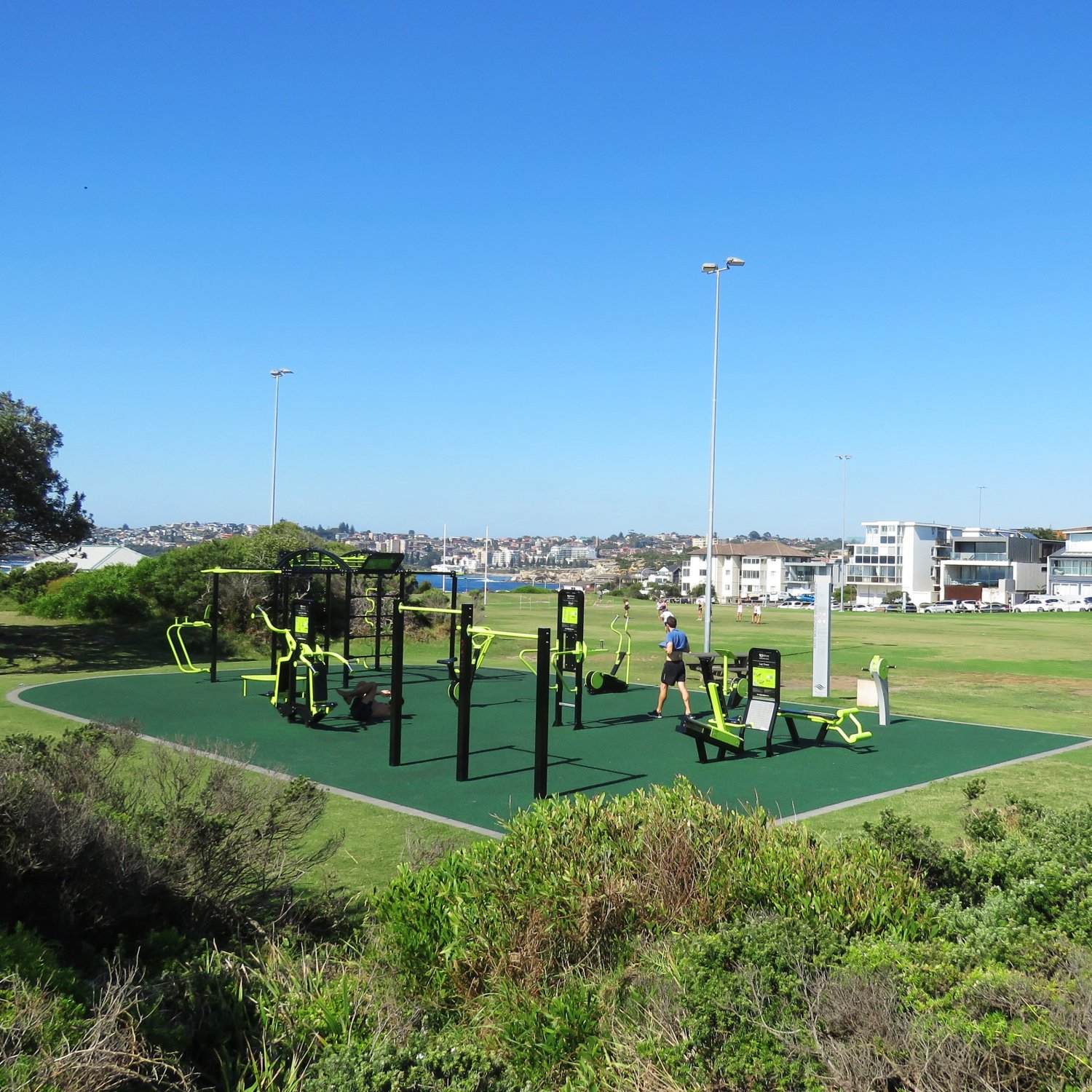
When it comes to exercise, we all know that we can get many benefits from a regular regimen, including…
- improving our mood
- increasing our energy
- managing our weight
- reducing our stress levels
- strengthening muscles and bones
- combating health problems
- promoting better sleep
- and even boosting our libido
There can be times when we are travelling that it is hard to motivate ourselves to keep to our regimen. This is especially so when we have a full program of touring for the day, or perhaps for several days.
Now, if that touring, and our travel generally, mean we are spending a lot of time sitting, then any form of exercise is much better than none.
In some cases, it may be possible to modify our usual workout, such as making use of public outdoor gyms, finding flights of stairs or steps to walk up and down, or even doing wall and bench sits, bench presses, and step-ups in a park.
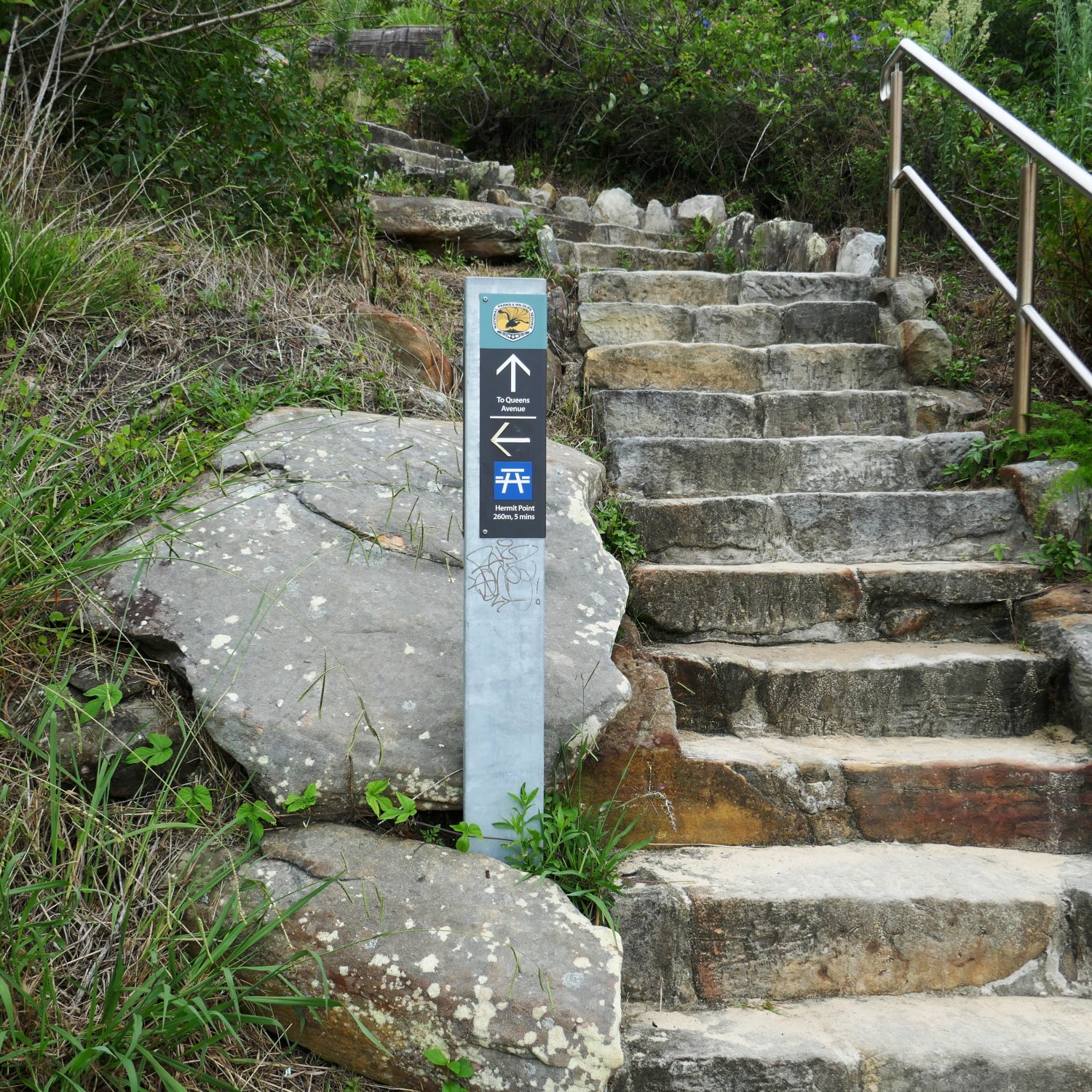
Meditation…
Travel can be exhausting! It can also be stressful, sometimes very stressful (like, when you turn up for your inter-city train, only to find that it has been cancelled because of a faulty engine – and the next train to your destination is in 8½ hours – true story!).
Meditation can be a great way of relieving our stress. Indeed, mediation is ideally suited to travel, as we can practice it, when, where and how we like. We don’t need any special equipment or memberships, it is entirely up to us.
Travelling to new places provides us opportunities to meditate in new settings. And, for those of us who experience anxiety when travelling, particularly from flying, meditation can help to get our mind into a good place.
Note : If you meditate regularly, don’t forget to take with you those aids you like to use during your sessions (but, don’t pack any candles in carry-on !).
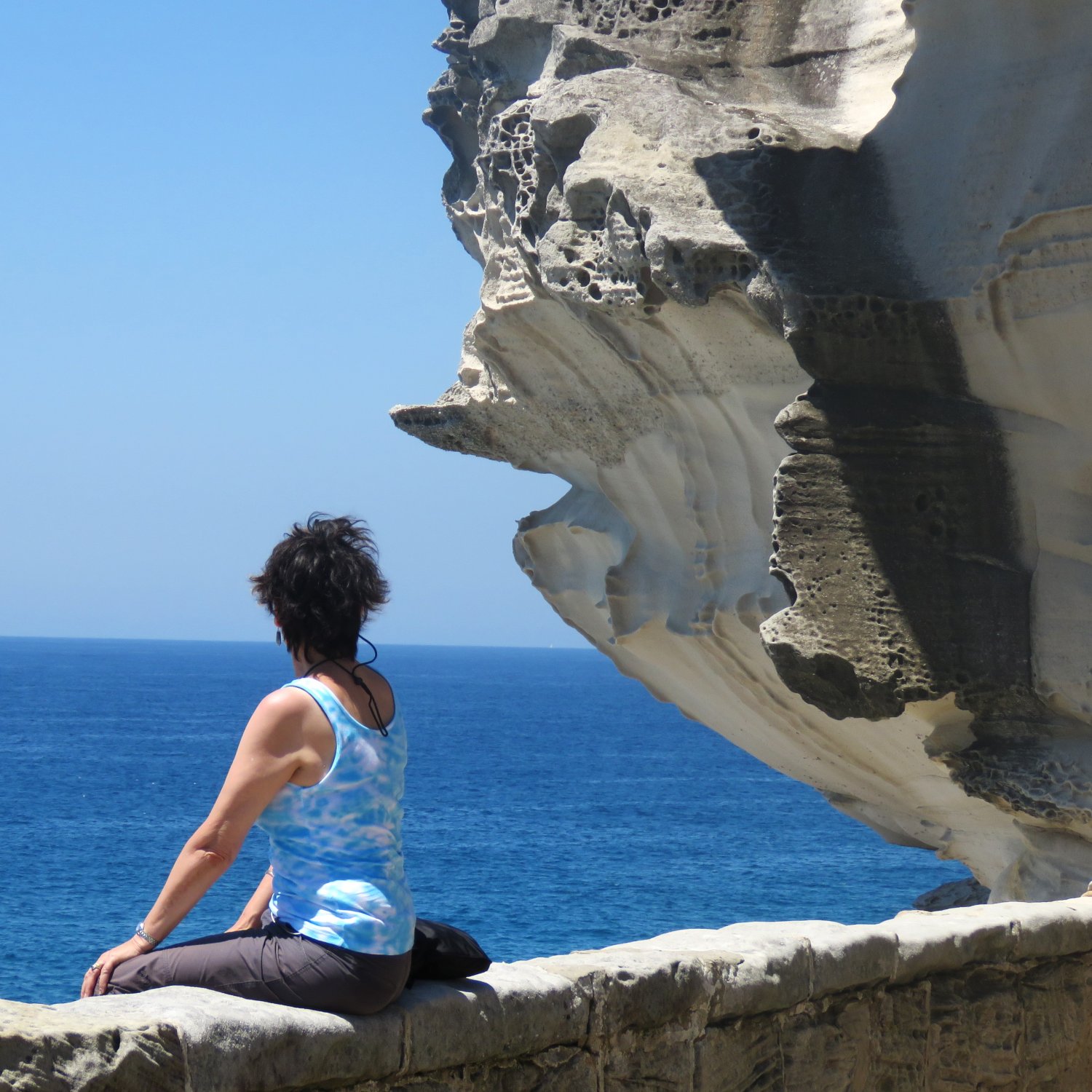
Your Take-outs
- Keeping a balance to our daily routine while we are travelling is about being mindful of our patterns for sleeping, eating, hydrating, exercising, and meditating; and reducing the extent of disruption there is to each of these.
- While this might require some fore-thought and planning, the likely benefits include better and safer experiences, while the consequences of ongoing disruption to our daily routine can be particularly serious.
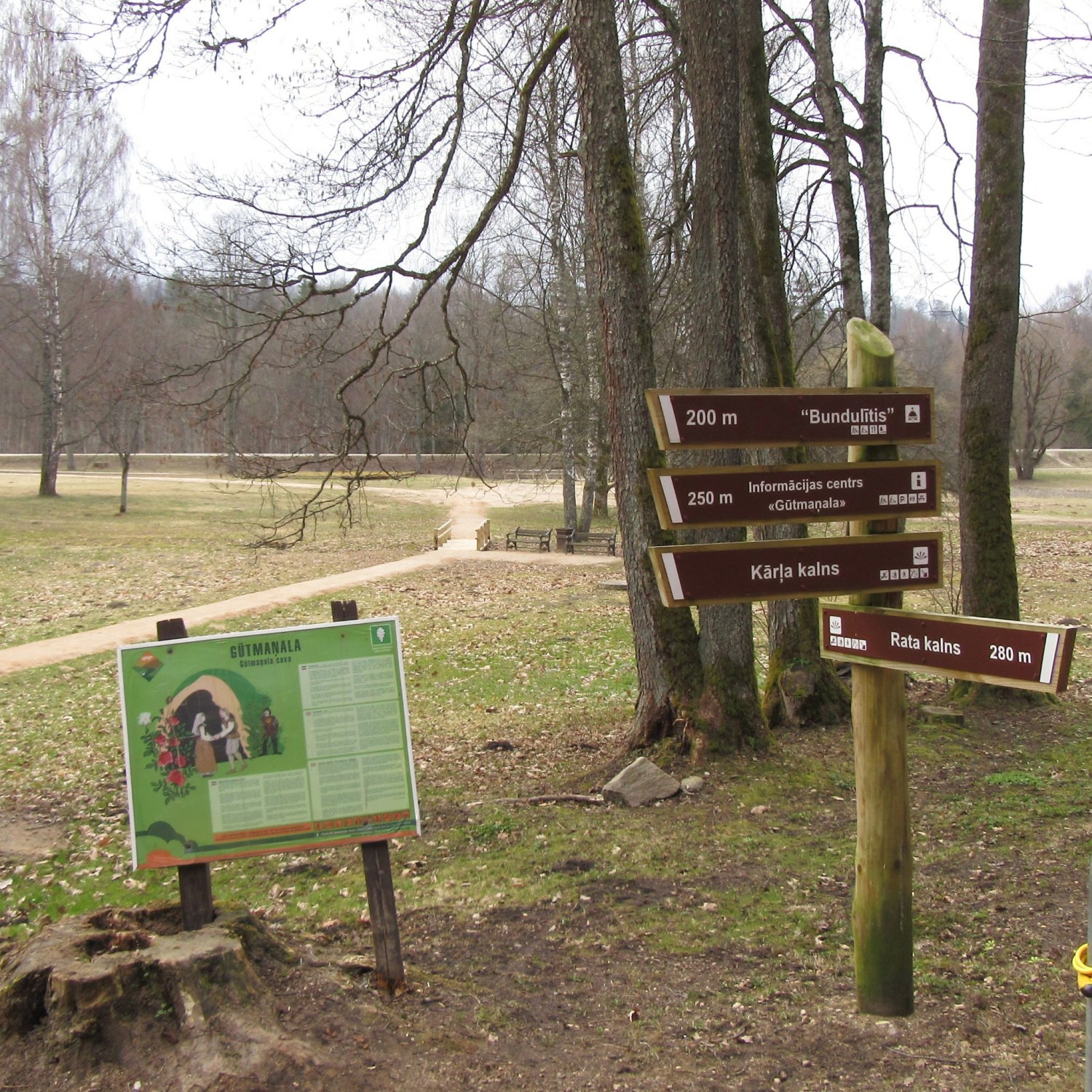
– NOT Friends!
Your Feedback, please…
Firstly, my thanks to you, for reading my post.
Now, the really BIG question is:
“What value has this Post offered you? “
Has it helped you, or do you need more information?
If you wish to offer some feedback, or to read the feedback from others, please follow the link below to the Feedback Page:
Why Your Feedback is Important to Me
In real life, I am an agile Change Manager, so I know that feedback is an essential part of the improvement process.
Your feedback can help me improve both the content of this Post, and also of future Posts.
If you have a thought, or a question, about the post content, or if you would like to provide feedback about something else, please follow the link to the Feedback Page.
I do look forward to hearing from you, especially if we can make improvements that will help fellow travelers on the road.
Marlene
Please note, before any feedback is posted, it will be moderated. When I am moderating, I may need to contact you, which is why I ask for your email address.
Your email address will
Here is a link to the my afootwego.com CONDITIONS for POST FEEDBACK (2½ mins to read).
Should you wish to peruse them, here are links to my afootwego.com PRIVACY POLICY and Website TERMS and CONDITIONS of USE.
- NOTE:
- This site is specifically designed for responsive display on a mobile device
On devices with wider screens, it will appear as a single, center-aligned column
